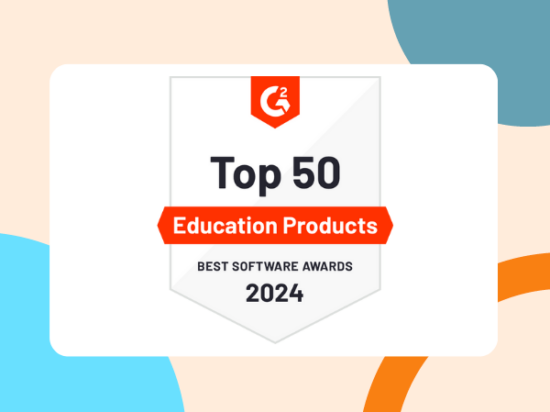Generative Artificial Intelligence has the potential to transform the future of education by innovating and reshaping teaching and learning practices. Generative Artificial Intelligence (AI) describes algorithms (such as ChatGPT) that can be used to create new content, including audio, code, images, text, simulations, and videos. Moodle is committed to a human-centred approach to generative AI that makes learning safe and accessible to everyone, regardless of location or financial situation. eLearning tools that use AI must improve outcomes for all types of learners, deliver efficiencies and unburden teachers and trainers from repetitive administrative tasks while ensuring the safety and protection of personal data.
Throughout its 20-year history, Moodle has been driven by using the power of technology to improve the quality of education worldwide.
Moodle Founder and CEO Martin Dougiamas, explains, “Education can be seen as a way to help people gain skills to get jobs, but education is much more than that. It is a way of passing on our human culture, and it is a way of defining our future. Education underpins our tackling all the large problems in the world, best defined by the UN Sustainable Development Goals. That foundational thinking has powered the Moodle project, using open-source methodologies to help empower hundreds of thousands of educators around the world to help define and build the educational platform that they want to see and use.
Now, with the rise of generative AI, we encounter a power that is potentially larger than the Internet itself, a power that has the potential to both harm us but also to help us in tremendously meaningful ways. Many jobs are already being automated, with many more to come, and if we can adapt well, it also seems possible that many of us might not even need to work in the future. The problem is larger than any single organisation can ever solve, but I am convinced that participating in existing Open EdTech projects such as Moodle is the best way for us all to help evolve global education processes together, in a way that is careful, inclusive and equitable.”
This article explores AI’s potential in eLearning, explains Moodle’s research-driven approach to responsible AI, considers potential areas of concern and summarises how to leverage the power of AI with Moodle plugins.
Moodle’s research-driven approach to AI
Headed by Martin Dougiamas, Moodle’s Research Lab is dedicated to researching, experimenting, and prototyping new technologies to inform Moodle’s roadmap. As one of the world’s larger open source projects, the Moodle community is critical to informing the development of our platforms, and in April 2023, we conducted a community survey on “AI in Moodle” on moodle.org.
We received feedback from 172 participants across 34 countries, with the US, Spain, Germany, Australia, and Great Britain being the most represented.
Nearly 70% of the respondents shared that they are feeling positive or somewhat positive about the future of AI in education, and community members emphasised that transparency, human oversight, and clear guidelines should underpin the use of AI in delivering genuine learning experiences.
When asked about the most popular ways to integrate AI into Moodle, the survey group identified study assistants for students, predictive analytics (e.g., identifying students at risk) and creating or modifying content to be more accessible, engaging and inclusive.
For those not yet a part of our community, we welcome you to join our Research Lab and become a part of future AI studies.
Harnessing the potential of AI in eLearning
In line with Moodle’s Research Lab findings, Moodle predicts and identifies the following key areas of AI that will contribute to revolutionising and creating engaging, efficient and effective online learning.
- Unburden teachers of boring, repetitive tasks
Good teaching and training is complex and requires empathy, improvisation, emotional intelligence, presence and creativity. AI should not, and will not, replace the human qualities that underpin great instruction. However, AI can relieve boring and repetitive administrative tasks that burden contemporary teachers. For instance, AI can automate assessment creation and grading, generate or transform content from one mode into another and analyse data to predict at-risk students. These kinds of AI tools already exist and can be accessed from the Moodle ecosystem
- Facilitate building creative and engaging courses
AI can assist teachers and trainers in creating a wide range of educational content to facilitate building creative and engaging courses. For instance, AI tools can be used to turn a video into text, generate an image to represent a concept, summarise complex issues and create interactive content through games, simulations and quizzes. By reducing the need for instructors to acquire complex technical ability across multiple software platforms, they are empowered to think creatively and action their vision quickly through AI connector tools that enhance course creation and management.
- Improve accessibility and accommodate difference
For students with disabilities, learning differences or those who speak a different language, AI can act as a learning enabler. For instance, AI tools can modify content to suit different reading levels or transform written content into audio for visually impaired students. By monitoring student performance, AI can detect patterns that might indicate learning disabilities or difficulties, prompting early intervention. Moodle’s ecosystem currently supports this functionality through plugins and some of Moodle’s Certified Integrations.
- Provide personalised support through a Learner’s Assistant
New in generative AI, AI-powered Learners’ Assistants promise to deliver personalised and instant feedback for students and employees as they progress through a course or learning program. Learners’ Assistants will ultimately anticipate what a learner is trying to do, prompt learners on impending deadlines, suggest content to reinforce complex concepts, deliver interactive and engaging formative assessments and even respond to learner questions through an AI-driven chatbot.
- Increase efficiency in course creation through a Teacher’s Assistant
As AI technology develops, a proactive or preemptive Teacher’s Assistant will harness the power of existing AI tools by providing suggestions to teachers on content, such as videos or articles, to enhance learning materials. It will also link to analytics to identify students struggling with concepts by analysing learner data and suggesting additional and instant support.
- Save time with auto-creation of quizzes and assessments
AI tools can reduce the administrative burden on teachers by generating quizzes and questions based on course content. Grading multiple-choice and fill-in-the-blank tests can be automated, giving educators more time to spend on instruction and student interaction.
Potential areas of concern with AI
The rapid technological advancement of AI brings many positives for education and learning but also demands a cautious and human-centred approach. Moodle identifies the critical areas of concern as follows:
- Plausible but false content
One main concern with AI is that it generates plausible but false responses (hallucinations). As the technology advances and AI cross-correlates between multiple sources of information, this is being mitigated. However, truth and trust regarding the reliability of source information demands a cautious approach and Moodle recommends human evaluation of the quality of AI-driven output.
- Privacy of data sent to public AIs
When AI is used in online learning or education platforms like Moodle, the platform or platform plugin connects with an AI engine – the AI does not exist within the platform itself. It is conceivable that content input into an AI engine could become public. Therefore, AI capabilities must be transparent (so users always know when AI is being used) and configurable (so institutions, organisations and learners can always decide which AI capabilities are enabled and which models they want to use). For instance, open source tools such as OpenAI have a switch, “Don’t remember anything I told you”. AI tools are trained on this kind of guardrail and should always be configured to protect the privacy and security of learners’ data.
We are committed to harnessing the potential of AI and ensuring data privacy and security within our ecosystem. Guided by this vision, we have crafted robust AI principles and a public statement governing our AI approach across Moodle.
Leveraging the power of AI with Moodle plugins
To ensure our AI solutions are transparent, configurable and future-proofed against regulatory requirements (which Moodle foresees as quickly evolving in the educational sector, particularly in the EU), the AI capability of Moodle exists via our general open-source plugins. These optional extensions interface with AI engines and are approved by Moodle as reliable tools to extend your online learning ecosystem.
The Moodle community has been busy creating a number of plugins so you can already experiment with adding generative AI to your own Moodle in different ways. Some of them are:
- AI connector
Generate and convert content into different forms to accommodate all learners and improve accessibility with the Moodle AI Connector local plugin which serves as a bridge between Moodle and AI-powered applications like ChatGPT, Dall-E, and Stable Diffusion. The plugin enhances Moodle’s capabilities by bringing AI-powered features to the platform, enabling users to leverage advanced AI technologies for various educational and learning purposes.
- AI text to questions generator
The AI Text to questions generator local plugin introduces an innovative way to assess learners’ understanding and engagement. It leverages AI to create dynamic quizzes and questionnaires, adjusting the difficulty level based on the individual’s performance. This adaptability ensures that learners are continually challenged without feeling overwhelmed, while educators gain valuable insights into their students’ progress and areas for improvement.
- OpenAI chat block
The OpenAI Chat Block plugin brings the power of AI-driven conversational interfaces into Moodle pages as a block. By integrating OpenAI’s language models, this plugin allows learners to engage in interactive and natural conversations to seek information, clarify questions, or explore course-related topics. The real-time assistance provided by the chat block not only supports learners’ queries but also fosters active learning and self-paced exploration.
- AI Text-to-image repository
The AI Text-to-Image plugin is a repository plugin that uses OpenAI to allow AI image creation directly inside Moodle’s file picker. This functionality proves invaluable for educators in creating visually engaging resources, enhancing course materials, and catering to diverse learning preferences. With the ability to convert text into images seamlessly, this plugin promotes content comprehension and retention among learners.
In light of Moodle’s approach to leveraging plugin-type capability, the Moodle roadmap also includes planning for the development of in-house plugins that will focus on:
- using AI to support engaging and creative content creation within the Moodle text editor. This will allow educators to enrich the content of their courses (both text & images) facilitated by the power of AI tools.
- building AI tools that empower teachers to enhance learning support through AI-driven assignment feedback and course & system management support e.g. AI-driven forum intent monitoring.
The first of these plugins is on the roadmap for delivery by the end of 2023. From there, Moodle will continue to prioritise deliverables in line with community feedback, research insights and other deliverable requirements.
For more information about Moodle and AI, please review Moodle’s AI statement.
Consider registering for MoodleMoot Global 2023! As part of our “lifelong learning” theme, several presentations will focus on AI in education technology and Moodle.


